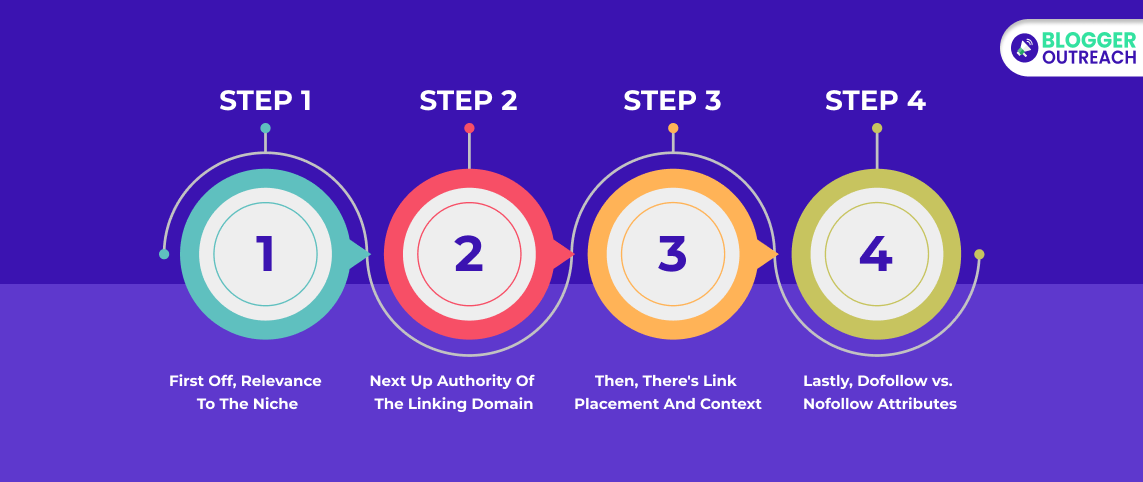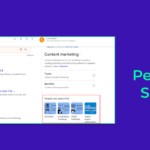Table Of Content
- 1 Factors Influencing Link Quality
- 2 Key To High Authority Links
- 3 Link Building Quality Control – The Importance
- 4 Strategies For Acquiring High-Quality Links
- 4.1 1. Guest Posting On Reputable Sites Within The Niche
- 4.2 2. Create Content That Naturally Attracts Links (Linkable Assets)
- 4.3 3. Building Relationships With Authority Figures And Websites In Your Industry
- 4.4 4. Participating In Community Discussions And Forums To Gain Organic Mentions
- 4.5 5. Using Broken Link Building to Replace Dead Links With Your Own Quality Content
- 5 Monitoring And Maintaining Link Quality
- 6 Red Flags To Avoid For Link Building Quality Control
- 7 Bottom Line
Links are the medicine that we all need, right?
But the harsh truth is that the bitter pill doesn’t go down easy.
Because not all links are created equal. Quality is the key determinant of whether a link propels or drops you forward.
That’s what we’re talking about today—quality control in link building.
It’s all about setting the foundation and building those authoritative links.
And it all starts with understanding the nitty gritty of what makes a link worthy of your website. It’s not rocket science, but it’s not child’s play either.
So, let’s break it down, step by step, starting with why a link needs to be more than just a hyperlink.
Table Of Content
- Factors Influencing Link Quality.
- Key to High Authority Links.
- Importance of Quality Control.
- Monitoring and Maintaining Link Quality.
- Red Flags to Avoid when you are considering link building quality control.
Factors Influencing Link Quality

What makes a link not just good but great? Let’s break it down, keeping things simple and straight to the point, just how Gary would’ve liked it.
1. First Off, Relevance To The Niche
Imagine you’re a chef and get a shoutout from a well-known food critic. That’s the kind of relevance we’re talking about. If your website is all about fitness and you’re getting links from top-notch health and wellness sites, you’re on the right track.
It’s like being in the right party; you want to mingle with folks who talk your language and share your interests. That’s how you make connections that count. Relevance is the first gatekeeper to ensuring a link carries weight.
2. Next Up Authority Of The Linking Domain
This is the heavyweight champion of factors. Some links flex muscles because they come from sites that are the big guns in their domain, the kind of sites that Google looks up to.
It’s like getting an endorsement from a celebrity in your field. If a leading industry site points a link your way, it’s as good as saying, “This site matters.” Authority signals trust, and trust is currency on the internet.
3. Then, There’s Link Placement And Context
Not all spots on a website are created equal. A link in the main body of an article is like being given the stage at a concert, while a link hidden in the footer is like being in the back row of the choir, barely visible. Context matters, too.
A link that flows naturally with the content around it is like a well-placed puzzle piece. It fits. It makes sense. It’s valuable. But if it sticks out like a sore thumb, it’s not doing you any favours.
4. Lastly, Dofollow vs. Nofollow Attributes
In the link-building party, “Dofollow” links are the ones that pass on the SEO juice (aka link juice). They’re like a nod of approval, a way to say, “Hey, I vouch for this site.” “Nofollow” links, on the other hand, are the polite nod from across the room.
(link juice is the authority that passes from one site to another when you get a link. So, the higher the authority, the better the link juice.)
They acknowledge your presence but don’t add to your reputation in the eyes of search engines. Both have their place, but when it comes to boosting your SEO, “follow” links are the golden tickets.
Key To High Authority Links
Look, we’re not just talking about any links; we’re talking about the kind that moves the needle and makes your site stand out in a crowd.
First, Domain Authority (DA) is your website’s score that predicts how well it ranks on search engines. A high DA means your site is seen as credible and authoritative. A high DR indicates a strong, reputable backlink profile. And make a standard for yourself.
Traffic is straightforward. More visitors to your site suggest your content is hitting the mark. High-authority sites usually attract quality traffic.
Trust Flow measures how trustworthy your site is within its niche based on the quality of links pointing to it. A high Trust Flow signals credibility.
Citation Flow tracks the number of links coming to your site, regardless of quality. It’s about link quantity. However, aim for a balance between Citation Flow and Trust Flow for both quantity and quality of links.
Lastly, the Spam Score reflects the likelihood of your site being penalized by Google. A low Spam Score is essential to avoid penalties.
Link Building Quality Control – The Importance
You’re here because you want to know why fussing over quality control in link building isn’t just for the nitpicky.
It’s for anyone who wants their website to survive and thrive.
Think of link building like making a burger. Anyone can slap some meat between two buns and call it a day.
But if you want people to come back for more, to really talk about your burger, you’ve got to be choosy about what goes in it.
The same goes for building links. You throw in any old link; sure, you’ve got one. But is it a link that adds flavour and brings customers back? Or does it turn them away?
Quality control in link building directly impacts your SEO outcomes. It’s like the difference between being known for the best burger in town versus one that gives everyone a stomachache.
Good quality links boost your site’s reputation, telling search engines, “Hey, this site’s worth noticing.”
For example, let’s talk in real life with some case studies.
There was this one website: Site A. Site A was all about shortcuts, PBNs, Link farming, or any black hat tactic and ignoring the quality of the sites linking back to them.
Sure enough, their traffic spiked at first, making them feel like kings of the hill. But then, Google caught on, and down the hill they rolled. Penalties hit them hard, recovery was slow, and for what? A short-lived victory?
On the flip side, Site B took the road less travelled. They focused on building relationships and creating stellar content that naturally attracted links. It wasn’t an overnight success.
It took patience, but when their rankings climbed, they stayed there. They built a reputation, a loyal customer base, and their traffic numbers. Solid and climbing.
Strategies For Acquiring High-Quality Links

It’s about being a sniper—precise, deliberate, and smart.
1. Guest Posting On Reputable Sites Within The Niche
First up, guest posting. It’s like being invited to a dinner party because you’ve got interesting stories, not because you just happened to be walking by. You write for reputable sites within your niche because they’re gatherings of your ideal audience.
You’re there to add value and share knowledge; subtly, your presence (aka your link) becomes a bridge to your own site.
2. Create Content That Naturally Attracts Links (Linkable Assets)
Then, there’s the art of crafting shareable, high-value content. This isn’t about churning out what everyone else does. It’s about creating good stuff that people can’t help but share.
Think of it as baking the kind of cookies that are so delicious; your friends beg you for the recipe. That’s your content. Make it irresistible, and the links will follow.
For example, if your site is from an SEO niche, you can create linkable assets like – 100 SEO statistics for 2024. Because people will link to this type of topic as they use this data to validate their claim.
3. Building Relationships With Authority Figures And Websites In Your Industry
This isn’t schmoozing or brown-nosing. It’s about genuine connections, finding common ground, and offering value. It’s like finding mentors and peers who respect what you do because you respect what they do.
These relationships can lead to links that are worth their weight in gold because they come from a place of mutual respect.
4. Participating In Community Discussions And Forums To Gain Organic Mentions
This is where you roll up your sleeves and get involved. You’re not there to drop links like breadcrumbs. You’re there to contribute, to be part of the conversation. It’s like being a helpful neighbour.
Over time, your contributions get noticed, and organic mentions of your site start popping up like flowers in spring.
5. Using Broken Link Building to Replace Dead Links With Your Own Quality Content
Lastly, there’s broken link building. This is like walking through your neighbour’s garden and noticing a broken fence. Instead of ignoring it, you offer a plank of wood to fix it.
If you find dead links on websites, then reach out and suggest your content as a replacement. It’s helpful, it’s appreciated, and it turns a broken link into an opportunity for a high-quality link back to your site.
Monitoring And Maintaining Link Quality
Monitoring and maintaining link quality isn’t just busy work; it’s the backbone of ensuring your site doesn’t just climb up the ranks but sticks there like glue.
First up, tools and techniques for keeping an eye on your backlink profile. For your links, tools like Ahrefs, SEMrush, or Moz are your watering cans and fertilizers. They let you peek into who’s linking to you, the quality of these links, and whether they’re helping you bloom or withering your chances at SEO glory.
Use them regularly, like checking your garden after a rainstorm. It’s about knowing what you’ve got and making sure it’s thriving.
Now, onto conducting regular link audits. Regular audits help you spot these bad boys. Look for links from sketchy sites, irrelevant ones, or any that scream, “I’m up to no good.” Spotting them is one thing; getting rid of them is another. Reach out and ask for removals, or use Google’s disavow tool as your last resort.
Lastly, let’s talk about strategies for continuous improvement. Link building isn’t a set-it-and-forget-it kind of deal. It’s more like training for a marathon. You’ve got to keep pushing and keep improving.
Diversify your strategies. Don’t just stick to one method. Mix it up with guest posts, linkable assets, and building relationships within your niche.
Always be on the lookout for opportunities to get a good link. It’s about staying active and engaged and providing immense value (the most important).
Red Flags To Avoid For Link Building Quality Control
So you’re diving into link building, huh? Good. It’s a solid tactic for your SEO arsenal.
But here’s what many miss: not all links are good. You’ve got to have your eyes peeled for red flags that scream ‘trouble.’
First, dodge those spammy-looking sites. You know the ones I’m talking about, right? They’ve got more ads than content, and they look like they haven’t seen a good scrubbing since the early 2000s. Google’s smart. They don’t hang with the dodgy crowd, and neither should you.
Next up is relevance. It’s like picking the right tool for the job. You wouldn’t use a hammer to slice bread. Don’t clutter your site with links that have no business being there. Every link should feel like it belongs, adding value and context.
Lastly, watch the pace. Rome wasn’t built in a day, and neither is a solid link profile. Build slow and steady. A sudden flood of links is like waving a big red flag at the search engines, and trust me, you don’t want that kind of attention.
Picture this: if a site that’s been quiet for ages suddenly gets a storm of backlinks, it doesn’t ring true, does it? Search engines are on the lookout for these spikes because they often smell of manipulation, not genuine popularity.
Bottom Line
Link building quality control is a necessary requirement for acquiring top-tier links. It’s like setting up a foundation.
But link building quality control is time-consuming. This is why most businesses look for SEO agencies that follow a process of link building quality control.
However, finding a reputed agency is challenging.
This is where agencies like BloggerOuteach come to the rescue.
With our proven link building framework, 185+ brands and SEO agencies have reached new heights.
So, if you want to know more about how we work, check out our case studies.
Read Also:








